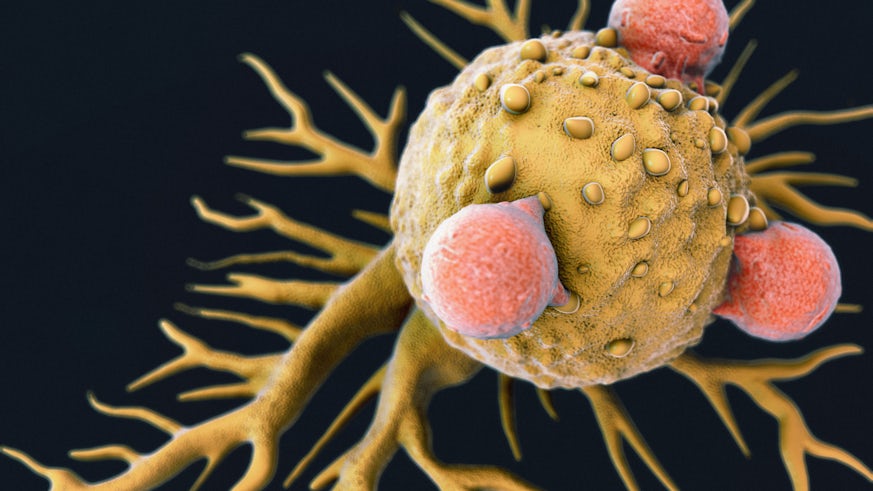Boosting the cancer-destroying ability of killer T-cells
26 June 2019

More types of cancer could potentially be destroyed by patients’ own immune cells, thanks to new research by Cardiff University.
The team of researchers discovered that increasing the amount of the molecule L-selectin on T-cells can vastly improve their ability to fight solid tumours.
Professor Ann Ager, from Cardiff University’s Systems Immunity Research Institute, said: “These results mean that immunotherapy could be used to fight most cancers. This is great news as this type of treatment is more targeted and doesn’t damage healthy cells.”
So far, immunotherapy that harnesses a patient’s own T-cells has only been used in the clinic to treat patients with certain types of leukaemia. In these patients, the cancer cells are circulating in their blood, so it's easy for the cancer-targeted immune cells, such as CAR-T cells, to find and attack the cancer cells. It has been much harder to treat solid tumours as the blood flow to them is poor, and the blood vessels inside them are not properly formed.
Professor Ager said: “Knowing that L-selectin is an important homing molecule on T cells, that directs their movement from the bloodstream and into inflamed tissues, we wanted to find out whether increasing L-selectin on anti-cancer T-cells would improve homing to the cancer, and help to destroy it.
“Our results were surprising. While increased L-selectin did improve the ability of T-cells to fight solid tumours it wasn’t because of better homing. The modified T-cells entered solid cancers within the first hour and kept accumulating inside the solid cancers over more than a week, suggesting that L-selectin also plays a role in activation and retention of anti-cancer T cells inside cancers.”
Dr John Maher, from King’s College London, added: “This research revealing a new role for L selectin in cancer immunotherapy offers great promise as a novel device to enhance the efficacy of engineered T cell immunotherapies for solid tumours.”
The research ‘L-selectin enhanced T cells improve the Efficacy of Cancer Immunotherapy’ is published in Frontiers in Immunology.
Funding was supplied by Wellcome Trust, the Medical Research Council, Cancer Research UK and Health and Care Research Wales.
Share this story
Our systems biology-based research informs the development of novel diagnostics, therapies and vaccines against some of the greatest public health threats of our time.


